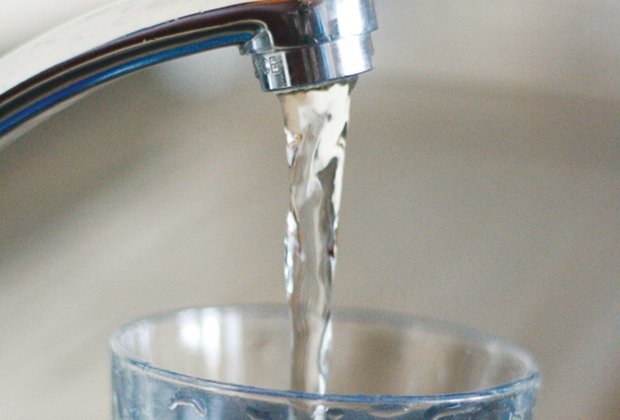As the warm weather continues, the demands on water supplies are outstripping the supply in several areas around the country with increased demand at 10% above normal or more. Irish Water and Limerick County Council are monitoring all supplies across the county on a daily basis and the at-risk schemes that are causing most concern at present are in Herbertstown, Knocklong, Oola, Hospital and Bruff. The Newcastlewest, Loghill, Pallasgreen and Doon areas are also of potential concern.
Irish Water is appealing to customers in Herbertstown, Knocklong, Oola, Hospital, Bruff, Newcastlewest, Loghill, Pallasgreen, Doon and surrounding areas to conserve water as reservoir levels on these schemes are now at a critical stage with demand exceeding production. Small measures by everybody will help to refill the reservoirs. Due to the increase in the demand for water and the limited availability of raw water as a result of the current dry weather, reservoir levels have dropped in these areas. In order to allow water levels to recover, it is necessary to impose a restriction on the Herbertstown, Knocklong, Oola, Hospital and Bruff supplies from 12.00 midnight tonight until 6am tomorrow morning and it is likely that these restrictions will continue until levels recover and supply exceeds demand. This will be reviewed on Monday.
Irish Water is working with Limerick County Council to do everything possible to conserve water available, examining how we can make further inroads into leakage and seeking maximum public cooperation in saving water. This requires that non-essential uses are stopped while the crisis lasts. The company is drafting Drought Orders to ban non-essential uses for schemes in crisis.
Irish Water will continue to encourage and support the public in their conservation efforts and we are grateful for all measures that have been taken in homes and businesses. In the last two days the utility has also been in touch with large commercial users who have committed to conserve water and we are very grateful to them for their efforts.
Irish Water’s Drought Management Team continues to meet daily and is monitoring water supplies and demand around the country. This work is coordinated daily through our three regional teams and the 31 local authorities operating the system. Local authority crews have been on the ground managing supplies, trying to control pressures and in critical schemes managing restrictions on night use to try to protect critical day-time use. Crews are busy identifying and fixing leaks to try to take pressure off the system and Irish Water wants to recognise and acknowledge the efforts that are being made. Irish Water is working to mobilise additional resources for finding and repairing leaks in support of the local authority efforts.
We continue to ask the public to notify us of leaks which we always follow up. Public side leaks are dealt with in the first instance by the local authority teams. We have contractors available to assist with private side leaks under the ‘First Fix’ scheme. Where we cannot access private property to repair obvious leaks, we are committed to serving enforcement notices under the legislation to enable us to have these effectively addressed.
Irish Water has also mobilised tankers across the country to fill reservoirs that are most at risk to protect water supplies and ensure customers have access to water. We are in touch with the farming organisations and offering assistance where water shortage is leading to animal welfare concerns. In critical situations we will accommodate farmers who need to collect water by tanker where it can be made available to meet urgent needs.
As outlined, we recognise that the powers available to us to ban specific uses of water (non-essential uses) in the Water Services Acts will be needed to underpin the conservation objective. Irish Water will make and publicise a number of orders shortly which will designate activities which must be banned for a period while the supply remains critical. Ultimately, the objective of water saving and responsible water use must rely primarily on public cooperation. However, these drought orders will provide certain powers of enforcement to be used where necessary in support of the urgent need to preserve valuable and increasingly scarce water resources to meet essential social and economic needs.
In many of our schemes, Irish Water’s primary concern is for longer-term supplies in late summer and autumn. Based on modelling previous dry years, and allowing for how dry the ground now is, we need to maximise conservation of raw water at this time to secure our needs over the coming months. Therefore, these urgent conservation messages are of critical importance to communities who have marginal supply areas across the country.
Commenting on the ongoing situation, Irish Water’s Corporate Affairs Manager, Kate Gannon said
“We are very grateful to the public and to businesses for all efforts to conserve water. We are very encouraged by the leadership shown by our large commercial users in their work to conserve water. Bus Éireann and Irish Rail have all committed to reducing the number of times they wash their fleets.
“Irish Water’s priority is to minimise the impact on homes and businesses, particularly during this period of holidays and high tourism.”
”Local authority crews supported by contractor resources are working to maximise water availability, though managing pressures to the minimum which avoids loss of supply. This work will continue and intensify in the months ahead.”
“We have a long way to go. If the drought is prolonged, water restrictions would become unavoidable if demand does not drop towards normal levels. Every effort someone makes in their home or business impacts their neighbour and community. Irish Water has lots of tips for conserving water in the home, garden and business on water.ie.”
“Irish Water is working to support customers to conserve water in the first instance and we will take necessary legal measures available to us to ensure that we minimise the risk of supply loss to businesses and communities.”











